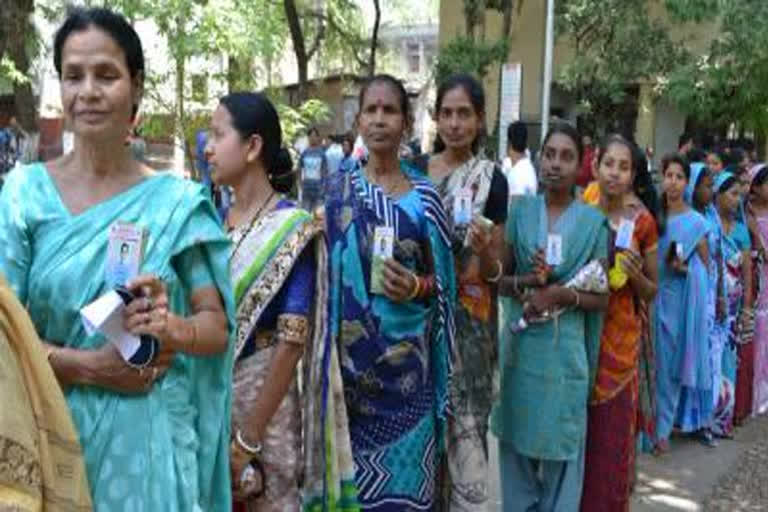Bongaon/Krishnanagar (WB): With citizenship for refugees having emerged as one of the poll planks of the BJP in its battle for Bengal, Matua bastions and the verdict they present this election will prove to be a test case for the party that had been weighing the pros and cons before implementing a new law enacted for the purpose.
Assembly seats in the Matua strongholds of Bongaon and Krishnanagar, close to the India-Bangladesh border, are set to go to polls in the sixth phase of elections, on April 22.
Matuas, who make for a large chunk of the state's Scheduled Caste population, had been migrating to West Bengal since the 1950s, primarily due to religious persecution in erstwhile East Pakistan and then Bangladesh.
Read:Bengal has opportunity to speak for the country: Chidambaram
With an estimated three million members in the state, the community influences result in at least four Lok Sabha seats and 30-40 assembly seats in Nadia, North and South 24 Parganas districts.
Apart from the implementation of the Citizenship Amendment Act (CAA), two other aspects -- identity politics and regional development -- have also surfaced as decisive factors this election, as bitter rivals TMC and the BJP go all out to woo the community with several promises aimed at solving local problems.
'The TMC and the CPI(M) governments have done nothing for the Matuas. It is the BJP that spared a thought for the community. Hence, it promised citizenship...
'The BJP passed the CAA in Parliament. But the TMC has opposed it tooth and nail in Bengal. We will vote against this injustice,' said BJP MP Santanu Thakur, who is also the younger scion of the Matua Thakurbari -- an influential socio-religious sect.
Countering him, Mamatabala Thakur, a former TMC MP and the daughter-in-law of the community's late matriarch Binapani Devi, said the BJP was fooling the refugees with false promises.
'Matuas are citizens of this country. They don't need any other proof of citizenship,' she said.
Read:JP Nadda chairs meeting to review preparedness of poll rallies in Bengal
The CAA seeks to grant citizenship to migrants belonging to Hindu, Sikh, Buddhist, Christian, Jain and Parsi communities who came to the country from Pakistan, Bangladesh and Afghanistan on or before December 31, 2014.
According to sources in the community, the citizenship law has emerged as a major issue among the community members as they are apprehensive that if the NRC exercise is conducted prior to CAA implementation, they might be branded as 'foreigners' who had entered India 'without valid documents'.
'Most of them fled religious persecution in Bangladesh and migrated to India. Now, if we don't give them citizenship, where will they go? CAA, for us, is not a political issue but a core ideological commitment,' Bengal BJP president Dilip Ghosh said.
